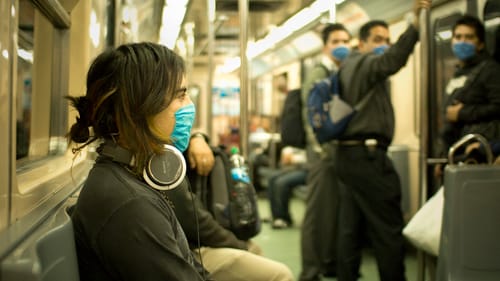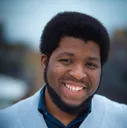Stay in the Loop
BSR publishes on a weekly schedule, with an email newsletter every Wednesday and Thursday morning. There’s no paywall, and subscribing is always free.
Seeds in the streams
Staying at home during the pandemic is just a start. What’s next?

I just got an email from my supervisor at one of my gigs: all part-time employees are being laid off. The pang of heartbreak wasn’t immediate, although I loved working at that theater space. There’s hope that it’ll bounce back, everyone will be rehired, and things will return to normal. Later, I thought about how realistic that wasn’t, and that’s when my heart cracked. Nothing is going to be the same after this, especially in the arts sector.
Streams of consciousness
Welcome to week three of quarantine, where Zoom has become a household term. Livestreams are a constant thing. People are connecting, whether it be through Twitch or Netflix Party. Theater companies, performers, and other artists are finding new ways to reach their audiences. These are the positive consequences of a pandemic, which is a chafing paradox. Within that, I’ve got this ominous voice wagering what’s next, since, you know, nothing is going to be the same.
The stakes are obvious. Jobs are disappearing. Service and retail workers are facing odds not in their favor, despite thanklessly standing on the front line. The future of many beloved arts and culture communities is uncertain. A few are making promises laced with furloughs and postponements that make assurance a slippery slope.
My social media feeds are full of people fiercely urging others to stay home. That’s good advice. And while I can’t stay in the comments long before I absorb other people’s panic and anxieties (hooray for hyper-empathy), I’m still waiting, every time I open Insta or Facebook or even Twitter (have mercy on my soul), for a practical, progressive thread: what do we do now?
Make the jump
What frightens me about this pandemic is the unknown. In my personal life, I take many calculated risks. Diving into the unknown has provided some wonderful opportunities, has led to significant personal growth and self-awareness, and has gradually fashioned me into a lover of failure. However, that’s just me when I’m rolling solo, and that has consequences for the people closest to me.
So imagine if we all jump into the unknown without any calculation or pragmatism. Imagine if we choose not to jump at all, and instead remain idle, waiting for an email that says, “Hey, the theater is open again! Come back on Monday!”
Let’s face it. We’re not going to rebound from this in the way we think we are—or when we think we will. We can’t depend on others to restore the same world. We can’t depend on that world coming back at all. History proves that.

Another day, another quarantine
I leapt into a wormhole about pandemics, outbreaks, and epidemics, and found a common thread in their aftermath. Going way back to the Black Death, or the plague, of the 14th century, there was major economic and cultural upheaval. It took two centuries before Europe recovered its pre-plague population. Jewish communities and people with disabilities suffered significant violence. Economies strained over decades. And the plague didn’t simply go away. Outbreaks from the Yersinia pestis bacteria have continued in the last 700 years, including as recently as the early 1900s in North America, and in Madagascar in 2017, where it killed nearly 200 people and left thousands more ill.
Hey, at least we got the Renaissance out of the plague. It’s discouraging that it takes such tragedy for us to mobilize. But here we are. In the midst of global economic distress and the other crises that COVID-19 has sparked, how will we respond with the arts, not just creatively but economically?
What else are we talking about?
The 1918 pandemic dubbed the Spanish Flu blew up in part because of misinformation, malpractice, and overall disregard. Facts were misreported, if reported at all. Information moved more slowly back then, and people had fewer resources and unreliable access to knowledge. But today, information is democratic, and for now, new gateways to the arts are open. Here, audiences can grow, and performances streamed online can plant seeds we never considered before. And as much as I would love to drop everything and develop the Twitch of the theater world, I don’t want to be an internet entrepreneur (they all have seem to have corrupt agendas and bad haircuts). But we do need information to mobilize.

I’m happy people are streaming their live sets, yoga classes, readings, and performances. I’m thankful people are coming together with online happy hours. “Social distancing” is a misnomer. But we’re going to be here for a while, and now that we know that, we have work to do. What else are we talking about other than staying at home? Will we be ready for the unknown when it’s time to “go to work?”
I’d love to promote accessibility by keeping the digital access going. Not everyone can make it out to venues. Not everyone can afford to. If I hadn’t had access to resources like Twitch and Skype before the pandemic, today’s dive into the unknown would have left me drowning. I integrated these platforms into my life a long time ago, and I think resources like them need to be leveraged for the arts to thrive. I don’t want this wave of resourceful social closeness to dissipate if things “go back to normal.”
I don’t have the answers, but I’m asking the questions. This pandemic and its aftermath will have lifelong effects on us. This isn’t just staying home for a few weeks. We’re in for years of “bouncing back.”
How are you preparing for the aftermath? Don’t wait until Monday.
Sign up for our newsletter
All of the week's new articles, all in one place. Sign up for the free weekly BSR newsletters, and don't miss a conversation.

 Kyle V. Hiller
Kyle V. Hiller